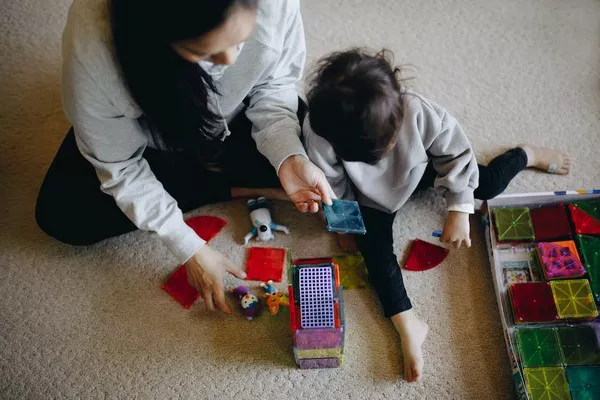Positive parenting is an approach that focuses on creating a loving, supportive, and nurturing environment for children to thrive. It involves using effective strategies to promote healthy emotional development, build strong relationships, and foster positive behaviors. One popular and effective framework for positive parenting revolves around the Three F’s – Firmness, Fairness, and Flexibility. In this comprehensive guide, we will delve into the Three F’s of positive parenting, exploring their significance and providing practical tips for parents to implement these principles in their daily interactions with their children.
Firmness
Firmness in positive parenting refers to setting clear and consistent boundaries and expectations for children. Establishing rules and limits helps children understand what is acceptable behavior and what is not, promoting a sense of security and structure. Firmness does not imply authoritarian parenting; instead, it involves maintaining a balance between being authoritative and empathetic.
Benefits of Firmness
- Promotes discipline and self-control in children.
- Helps children feel safe and secure.
- Reduces behavior problems by setting appropriate boundaries.
- Encourages respect for rules and authority figures.
Tips for Implementing Firmness
- Be clear about the rules and expectations from the beginning.
- Use positive language to communicate rules rather than focusing on prohibitions.
- Consistently enforce consequences when rules are broken, using logical and age-appropriate consequences.
- Be responsive to your child’s emotions while maintaining the boundaries.
Fairness
Fairness is a crucial aspect of positive parenting that involves treating each child equitably and justly. Every child is unique and may require different approaches, attention, and support. Being fair does not mean treating all children equally; rather, it is about meeting each child’s individual needs and acknowledging their feelings and perspectives.
Benefits of Fairness
- Builds trust between parent and child.
- Fosters a positive parent-child relationship.
- Helps inculcate a sense of justice and empathy in children.
- Encourages children to communicate openly with their parents.
Tips for Implementing Fairness
- Spend one-on-one time with each child to understand their needs and interests better.
- Avoid making comparisons between siblings, as it can lead to resentment.
- Be open to discussions and consider your child’s point of view before making decisions.
- Celebrate each child’s achievements and milestones, regardless of how big or small they may be.
Flexibility
Flexibility in positive parenting refers to the ability to adapt and adjust strategies based on the child’s age, temperament, and changing circumstances. While rules and boundaries are essential, being rigid can lead to frustration and resentment. Flexibility allows parents to respond to their child’s developmental stages and unique characteristics with compassion and understanding.
Benefits of Flexibility
- Promotes a positive and supportive environment at home.
- Reduces power struggles between parents and children.
- Encourages problem-solving skills and adaptability in children.
- Strengthens the parent-child bond.
Tips for Implementing Flexibility
- Be willing to negotiate and compromise when appropriate.
- Understand that children’s needs change as they grow, so adjust your approach accordingly.
- Communicate openly with your child about changes in routines or rules.
- Encourage your child to express their feelings and opinions without fear of judgment.
Conclusion
Incorporating the Three F’s of positive parenting – Firmness, Fairness, and Flexibility – into your parenting approach can have a profound impact on your child’s emotional well-being and overall development. Firmness provides structure and stability, fairness nurtures trust and empathy, and flexibility enables parents to adapt to their child’s changing needs. By embodying these principles, parents can create a loving and supportive environment that fosters a strong parent-child relationship and empowers children to grow into confident and responsible individuals.


